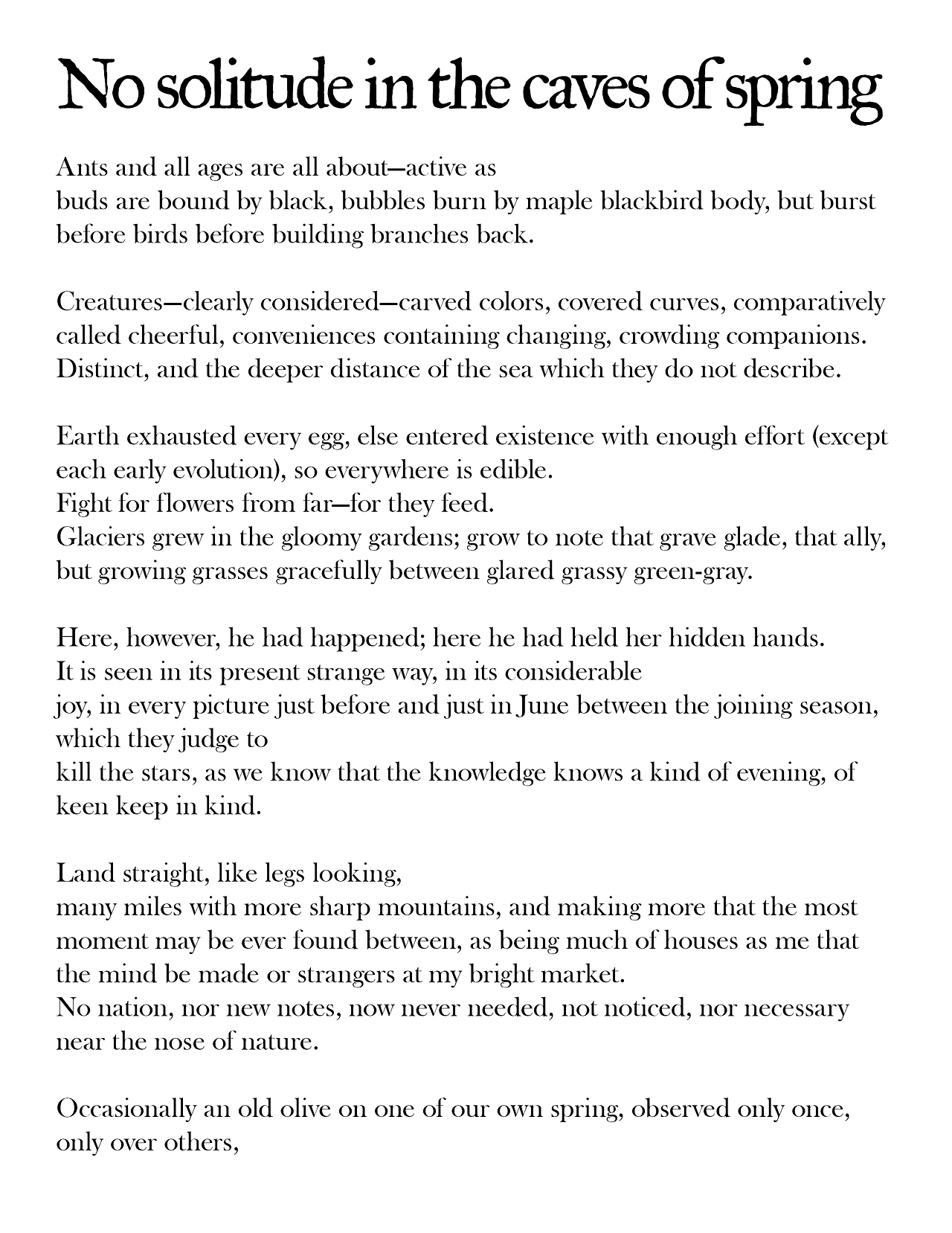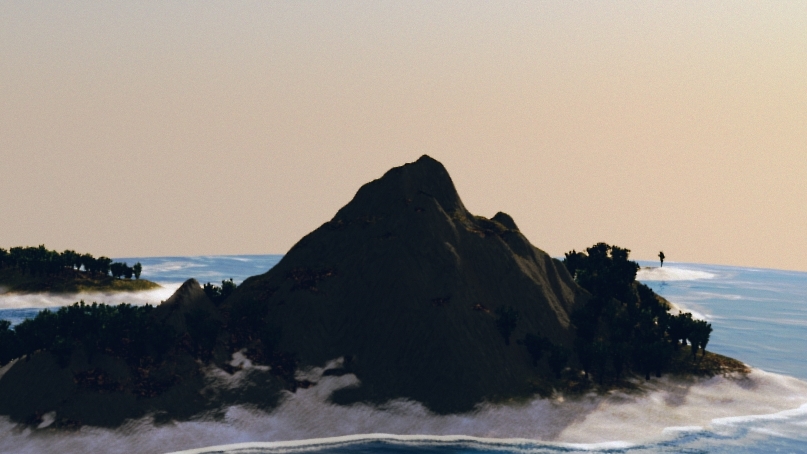

No solitude in the caves of spring
A National Poetry Generation Month poem generated by lizadaly.
Ants and all ages are all about—active as
buds are bound by black, bubbles burn by maple blackbird body, but burst before birds before building branches back.
Creatures—clearly considered—carved colors, covered curves, comparatively called cheerful, conveniences containing changing, crowding companions.
Distinct, and the deeper distance of the sea which they do not describe.
Earth exhausted every egg, else entered existence with enough effort (except each early evolution), so everywhere is edible.
Fight for flowers from far—for they feed.
Glaciers grew in the gloomy gardens; grow to note that grave glade, that ally, but growing grasses gracefully between glared grassy green-gray.
Here, however, he had happened; here he had held her hidden hands.
It is seen in its present strange way, in its considerable
joy, in every picture just before and just in June between the joining season, which they judge to
kill the stars, as we know that the knowledge knows a kind of evening, of keen keep in kind.
Land straight, like legs looking,
many miles with more sharp mountains, and making more that the most moment may be ever found between, as being much of houses as me that the mind be made or strangers at my bright market.
No nation, nor new notes, now never needed, not noticed, nor necessary near the nose of nature.
Occasionally an old olive on one of our own spring, observed only once, only over others,
pressed plants perched pictures. Pale peaks pouring: the palm-trees that proved place placed performance, provided part pebbles and passes perfect; but perhaps principally preserve perpetual poets.
Quickly, quieted, quite: and the birds resemble the system of quails but if they quest, we too but so with its question—
River: of recognizing rivers, referring reflecting and returning (related to recognition) rolled round right roots.
Some species spring several, some so short, strange strains.
There the tall third thing! There they travel, the trees through till they too, top them.
Upward to us, used upon us, uncommonly useful unless unable under with sometimes, usually, unfortunately, it’s under a uniform united universe.
Variations of very various volumes, natural visitors, have ended from the vast valleys
when we were wanting, when we were without wide wild waters.
XVII
You are the part of the great season, and you have been seen many years and from far way to your present beauty that is much in your
zest, and one that then failed to cry with them over the nervous world.
Each line tries to have all the words start with the same letter of the alphabet, A through Z. It was generated with a recursive neural network trained on public domain naturalist guides and essays.
Something I like about generated poetry, when it works well, is the way the juxtaposition of unexpected imagery creates new ideas.
This is often more about the reader than about the writer: the generator doesn’t understand the kind of picture that a line like
Glaciers grew in the gloomy gardens; grow to note that grave glade, that ally, but growing grasses gracefully between glared grassy green-gray.
implies to the reader: I see a cold spring, where the surviving ice that shelters in shadows of a copse of trees is contrasted by the emerging grass.
On the other hand, the neural network understands something about the relationship of these words. In a similar way to how the S+7 OuLiPo formula changes the words but not the semantic structure, the neural network preserves underlying relationships between the words, relationships that it describes in its alien hundred-dimensional classification.
